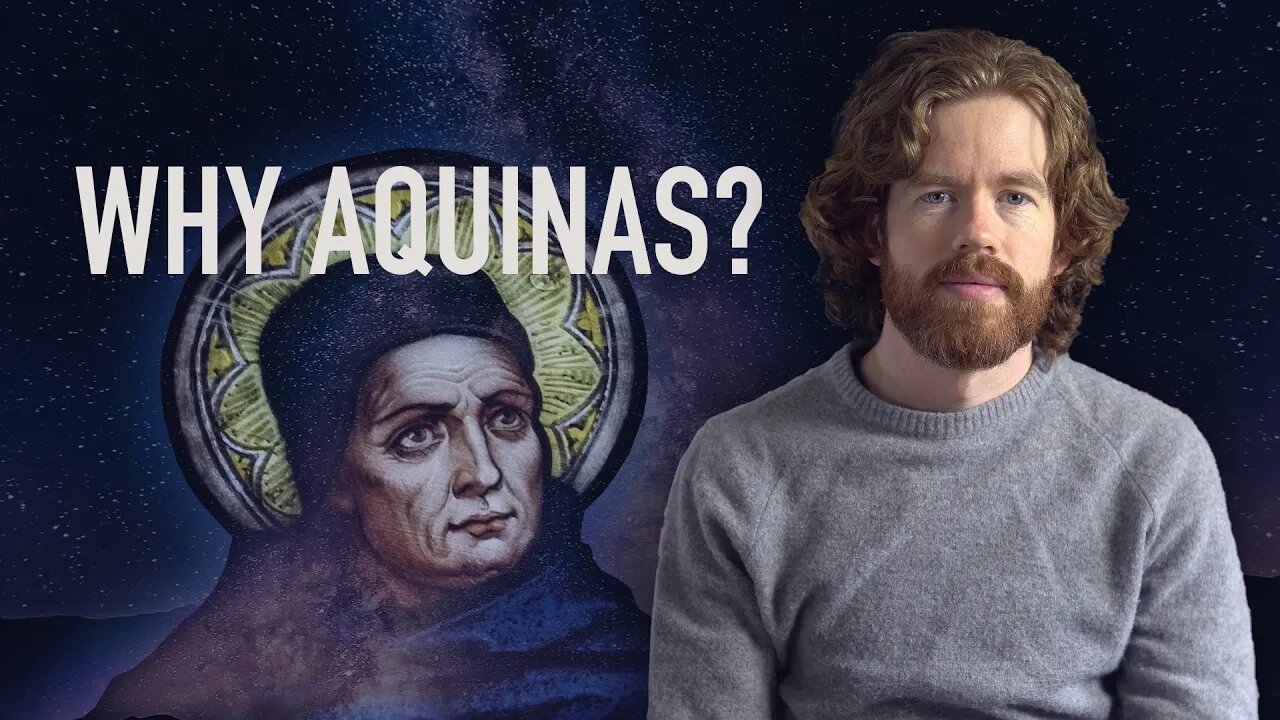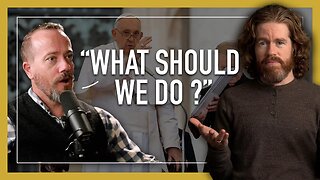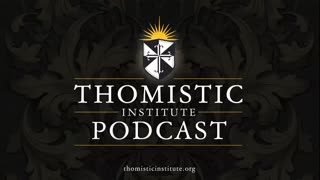Premium Only Content

Why St. Thomas Aquinas is so Important
Music written and generously provided by Paul Jernberg. Find out more about his work as a composer here: http://pauljernberg.com
I once observed an online exchange between a couple people, one of whom is what you might call a Catholic celebrity which is just to say he’s a high profile Catholic commentator. Over the course of the conversation the less renowned debater made an appeal to St. Thomas Aquinas to which the celebrity replied with something like, “St. Thomas is fine for some, but give me Rahner, give me Kung, give me Congar.”
That little exchange on the surface just appears to be a couple nerdy Catholics describing their favourite theologians but in reality, it’s a depiction of a deep divide that exists in the Church today that most of us probably aren’t aware of and it’s important to understand because it speaks to why there are these competing currents in the Church today and how we should discern between them.
Going all the way back to the earliest days of the Church, leaders and evangelists started confronting a question that wasn’t easy to answer which was how do we reconcile faith and reason which represented two kinds of knowledge.
Faith is a knowledge that comes to us from God through revelation. It’s God giving us the answer key to life and encouraging us to trust him and to follow it. Reason is our ability to access what is true through our intellectual capability.
And the reason this challenge emerged so quickly is because of the Church’s collision with the Greco-Roman world through its evangelistic efforts, because they had a tradition of reason through the deposit of knowledge that came through great thinkers like Socrates, Plato, and Aristotle among many more.
And this tension was kind of neatly put by Tertullian who was an early Church father who said, “What does Athens have to do with Jerusalem.” And by that he wasn’t describing two nationalities or cultures. He was using these cities as metaphors for faith and reason, Athens representing the tradition of reason, and Jerusalem representing the place where God dwelled and where the people lived by faith.
We also see right at the beginning of John’s gospel he describes Jesus as the Logos identifying God with reason and in Acts 17, we see Paul appealing to the Athenians by reason and argument. So from the absolute beginning of the Church there’s a recognition of the legitimacy of reason as a means to knowing truth and persuading others.
But how they inform each other, how much we should rely on one or the other was unresolved. Some believed all we needed was faith and this current was known as Fideism. Some took a more rational line and believed that our reason could apprehend all truth.
And this tension played out through the Church for centuries until scholasticism and St. Thomas Aquinas arrived who introduced a concept that helped resolve the question for a lot of people. He said that Grace does not destroy nature, but it perfects it.
Because the trouble with reason is that it’s a human faculty and the problem with human faculties is that they are clouded with sin and our fallen nature. So how much we can rely on them has always been a difficult question to answer.
If you follow the Protestant line of thinking on this, our nature, and therefore reason, is completely broken and we can’t rely on it at all which is why Luther said that reason is a whore (Luther had a way with words).
He was promoting a renewed emphasis on faith and or Fideism which is why there are so many currents within Protestantism, especially American fundamentalism, where people say things like, just have faith.
It’s why so many people backlash against their fundamentalist upbringing because when they started to ask questions and employ their reason, they were met with slogans like, “When in doubt, faith it out.” And that’s unfortunate because that’s not the ancient tradition which has been one that has tried to balance the legitimacy of both faith and reason.
And St. Thomas took a massive stride forward in our ability to do that when he said that Grace perfects nature. Yes, nature is compromised, but when we expose ourselves to God’s grace and his willingness to make his goodness available to us that we might be transformed, then our nature, reason with it, becomes elevated and perfected into a condition where we CAN rely on it.
Thomas did much more than that as a prolific thinker and writer, but this contribution to Catholic thought made it possible for faith and reason to live in a kind of harmony until the Protestant Reformation became a loud voice for fideism once again.
-
 11:57
11:57
Brian Holdsworth
1 year ago $0.08 earnedWhat Should Catholics Do?
3782 -
 6:16
6:16
One Catholic Teacher
2 years agoThe Search For Truth With Thomas Aquinas
18 -
 12:08
12:08
Catholic Media
2 years agoMiracles in the life of Saint Thomas Aquinas
33 -
 1:25:13
1:25:13
Cafeteria Catholics Come Home
3 years agoAquinas on the Incarnation | Fr. Thomas Joseph White, O.P.
791 -
 1:55
1:55
KSHB
2 years agoFormer St. Thomas Aquinas student reacts to charges against former choir director Joseph Heidesch
1 -
 LIVE
LIVE
Barry Cunningham
5 hours agoTRUMP DAILY BRIEFING: KASH PATEL VOTE | WHITE HOUSE PRESS CONFERENCE | DOGE UPDATE
1,988 watching -
 LIVE
LIVE
The Quartering
3 hours agoRand Paul Praises Trump, Amazon Takes Control of Bond, and Delta Gives Passengers $30,000
3,976 watching -
 1:01:59
1:01:59
The White House
2 hours agoPress Secretary Karoline Leavitt Briefs Members of the Media, Feb. 20, 2025
33.5K15 -
 59:58
59:58
Russell Brand
4 hours agoLive from Mar-a-Lago: The Globalist Empire’s Last Stand – SF541
90.2K65 -
 35:23
35:23
CryptoWendyO
1 hour ago $0.62 earnedCrypto Chaos Unleashed: Trump Making USA The Bitcoin Capital Of The World
4.66K